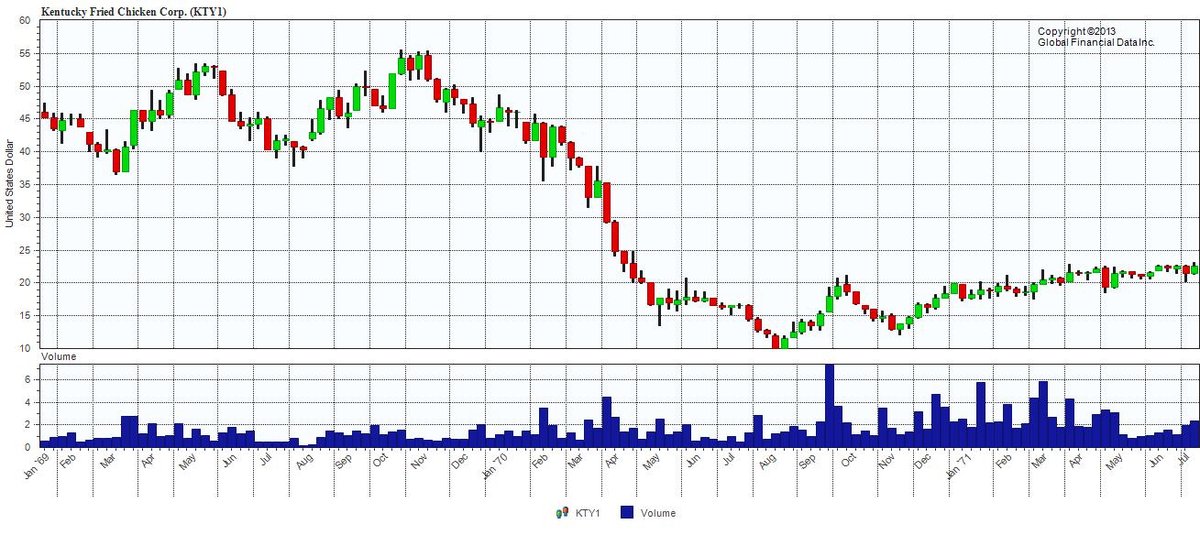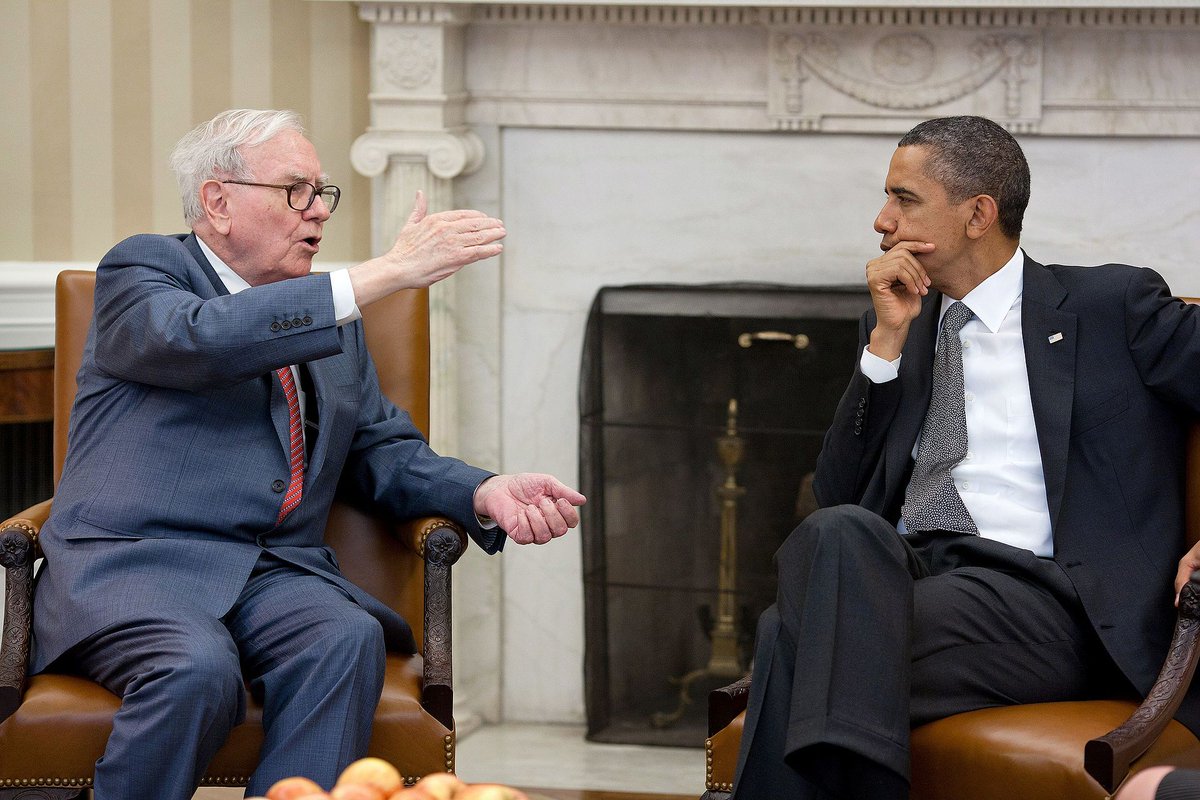
Some stocks have made incredible moves, rewarding investors immensely. In many cases, the most important part of the stock’s performance came before the company listed on the NYSE, not after. A good example of this is Kentucky Fried Chicken Corp (KFC).
KFC incorporated on March 4, 1964, and merged into Heublein, Inc. on July 8, 1971. Before the original KFC (now owned by Yum! Brands, Inc.) was acquired, it had one of the most spectacular runs of the 1960s, but most of it occurred before KFC joined the NYSE.
The chart below shows KFC’s performance on the NYSE. Between the time KFC listed on the NYSE on January 16, 1969 and it was acquired on July 8, 1971, the stock is a sad site, losing half of its value by declining from 46.875 to 22.5. 

KFC’s performance OTC was quite a different story. In March 1966, the stock was trading at 21.50, and had 5:4 splits in December 1965 and December 1966, a 3:1 split in December 1967, and a 2:1 split in October 1968, or a cumulative 9.375:1 split.
In a period of less than three years, between March 1966 and January 1969, a period of less than three years, KFC enjoyed a twenty-fold move in its stock! The chart below shows the complete history of Kentucky Fried Chicken Corp. from 1966 to 1971. 

Complete histories are important. Otherwise, you’ll never discover some of the greatest moves in stock market history.
• • •
Missing some Tweet in this thread? You can try to
force a refresh








